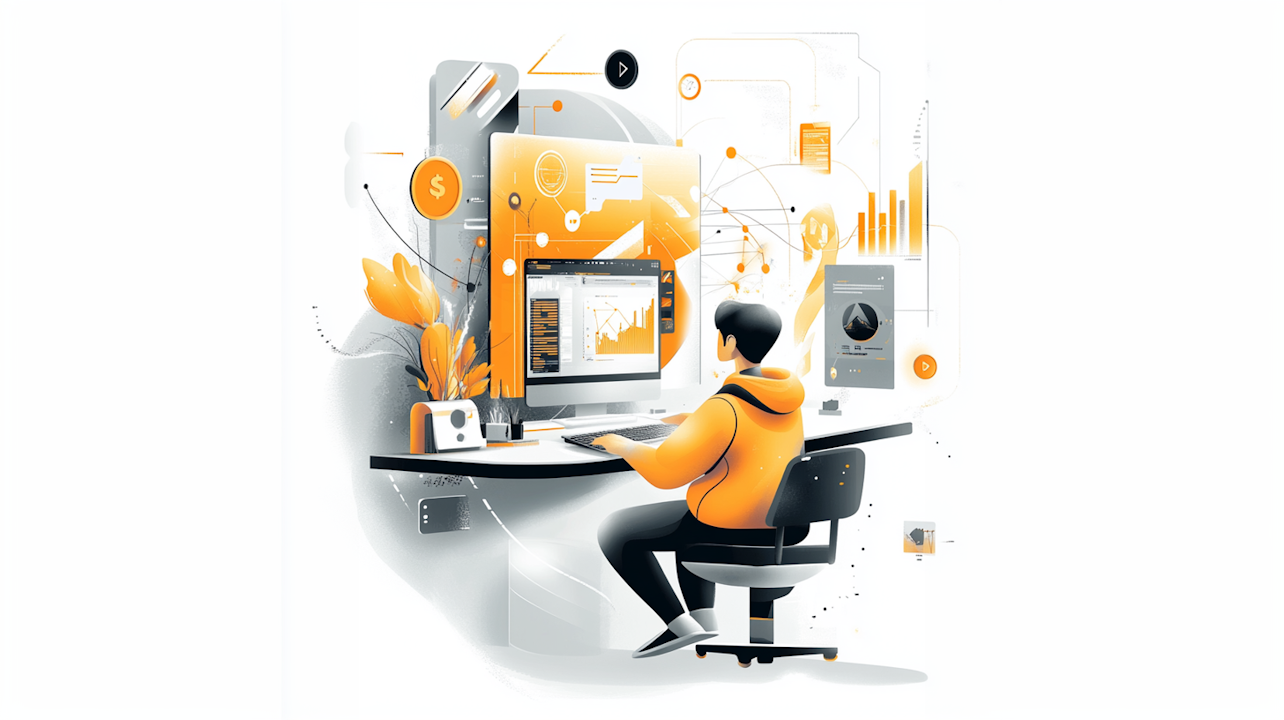There’s a new muse in town, and it’s neither human nor divine—it’s artificial intelligence (AI). In 2025, AI is set to reshape the ever-growing creator economy. Serving as both muse and mechanic, AI is redefining how content is created and monetised in a landscape brimming with digital opportunities.
The creator economy—a flourishing market of independent content creators and influencers—thrives on digital platforms. Now, AI is energising this sector by simplifying production processes, facilitating novel ways to engage with audiences, and delivering personalised experiences that truly resonate. According to industry insights, algorithms in 2025 will refine personalised content delivery far beyond yesterday’s capabilities, giving creators an even greater edge in reaching and interacting with their fans.
The Ascendance of AI Tools
An expanding arsenal of AI tools is boosting both the efficiency and creativity of content production. From generative AI that crafts striking visuals and compelling narratives, to AI-driven analytics that uncover insights about audience behaviours, these tools are transforming the creator toolkit. Platforms often highlight AI content generators like Rytr and Descript, speeding up the writing and editing process while helping creators tailor material to specific audience preferences.
In addition to upgrading quality, AI technologies enable creators to scale more effectively. By helping creators produce higher volumes of premium content, AI technologies underpin multiple revenue streams and fuel online prominence—making them indispensable in the race for audience engagement.
Pioneers in AI-Driven Creation
Leading voices in the creator economy are already harnessing AI to bolster their reach and economic returns. Success stories reveal exponential engagement growth when AI is integrated strategically. For instance, creators are using AI to boost virtual interactions and content customisation, transcending regional barriers to build global audiences.
These strategic AI tools also drive deeper audience relationships, helping creators cultivate loyal communities. As a result, monetisation shifts from mere content views to sustainable, long-term revenue models—turning creative expression into a flourishing business venture.
Navigating AI’s Complex Terrain
Despite its transformative potential, AI integration comes with challenges. Ethical and legal concerns around AI-generated content are at the forefront. As this technology blurs the line between human and automated creation, questions regarding copyright and content ownership are already prompting discussions and legal inquiries. Analyses from 2025 shed light on the complexities shaping these debates.
Cost and accessibility also remain hurdles, especially given the premium often placed on cutting-edge AI solutions. Meanwhile, creators must continuously sharpen their skills to keep pace with AI’s swift evolution—a reality of the dynamic digital environment where change is the only constant.
Embracing a Future of Abundant Opportunities
Nonetheless, the path ahead shines bright for creators. Subscription services, sponsored content, and innovative partnerships thrive in this AI-empowered landscape. Predictions for 2025 suggest that AI will play an ever more vital role in shaping economic strategies, merging the artistry of creators with data-driven decision-making.
As we move forward, creators are encouraged to view AI not just as a fleeting trend, but as a transformative force that fuses creativity with technology. By harnessing the power of AI, the creator economy stands on the cusp of unprecedented growth—where improved earnings and enhanced expression go hand in hand.
In conclusion, AI’s rise signals a new era for content creators. It is an era where innovation and imagination meet technology, unlocking higher revenue and deeper engagement with audiences. The AI revolution is here—those ready to ride the wave can expect a richer, more expansive digital frontier ahead.
In Other News…
AI-Powered Mini PCs: A New Era of Computing Microsoft is set to unveil a new line of mini PCs equipped with its AI-driven Copilot Plus features. These compact devices are expected to offer functionalities such as Recall, Click To Do, and AI-powered image generation. Manufacturers like Asus and Geekom have already announced models like the NUC 14 Pro AI, which will be showcased at CES next week. This development signifies a shift towards more accessible AI integration in everyday computing devices.
Read More
AI Cameras Combat Drunk Driving in the UK The UK has introduced AI-powered cameras designed to detect drunk drivers by monitoring for signs like swerving or erratic speeds. Developed by Acusensus, these cameras alert nearby police officers upon detecting suspicious behavior. Currently deployed in areas such as Devon, Cornwall, Staffordshire, and Greater Manchester, this technology aims to enhance road safety and reduce drink-driving incidents. Read More
Synaptics Partners with Google on Edge AI Technology Synaptics has announced a partnership with Google’s AI division to develop Edge AI technology for the Internet of Things (IoT). This collaboration aims to enhance multimodal processing for context-aware computing by integrating Google’s machine learning core with Synaptics’ hardware. Following the announcement, Synaptics’ stock surged by over 6%, indicating strong investor confidence in the potential of this partnership. Read More


